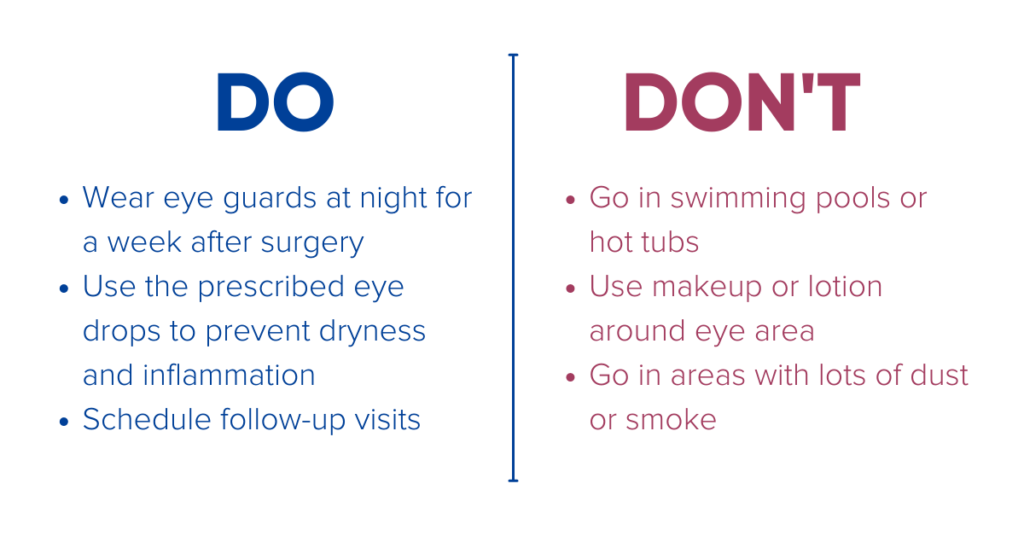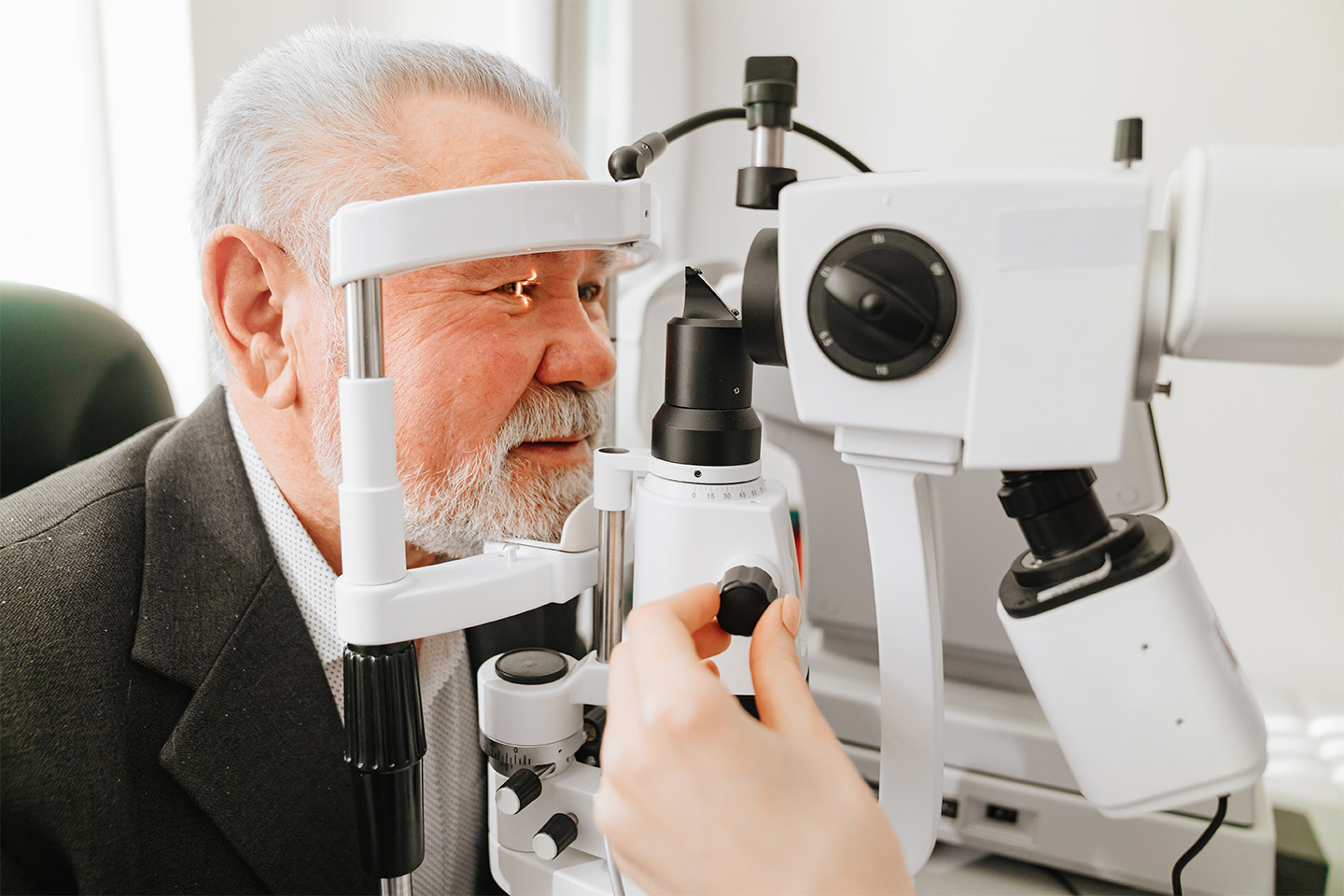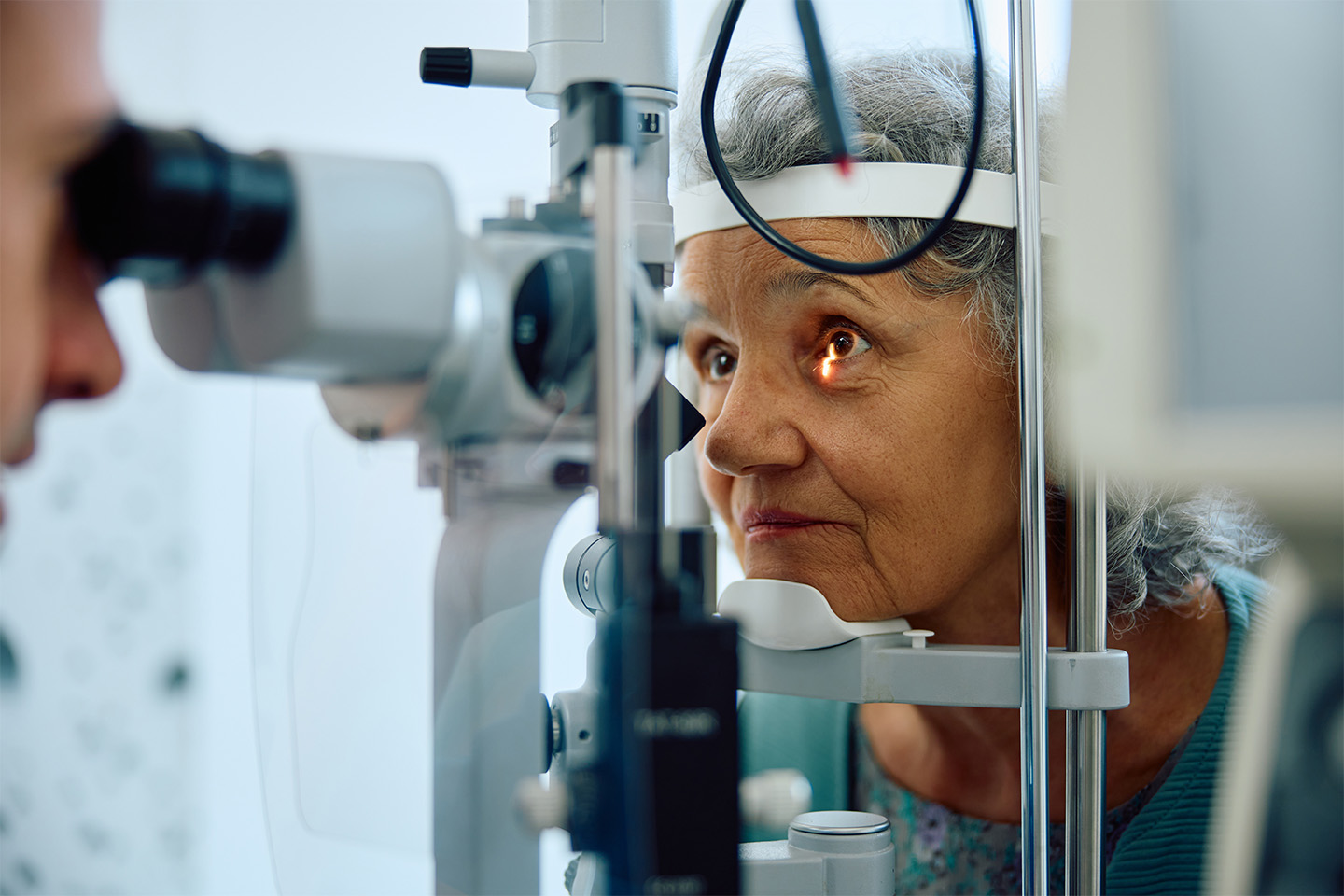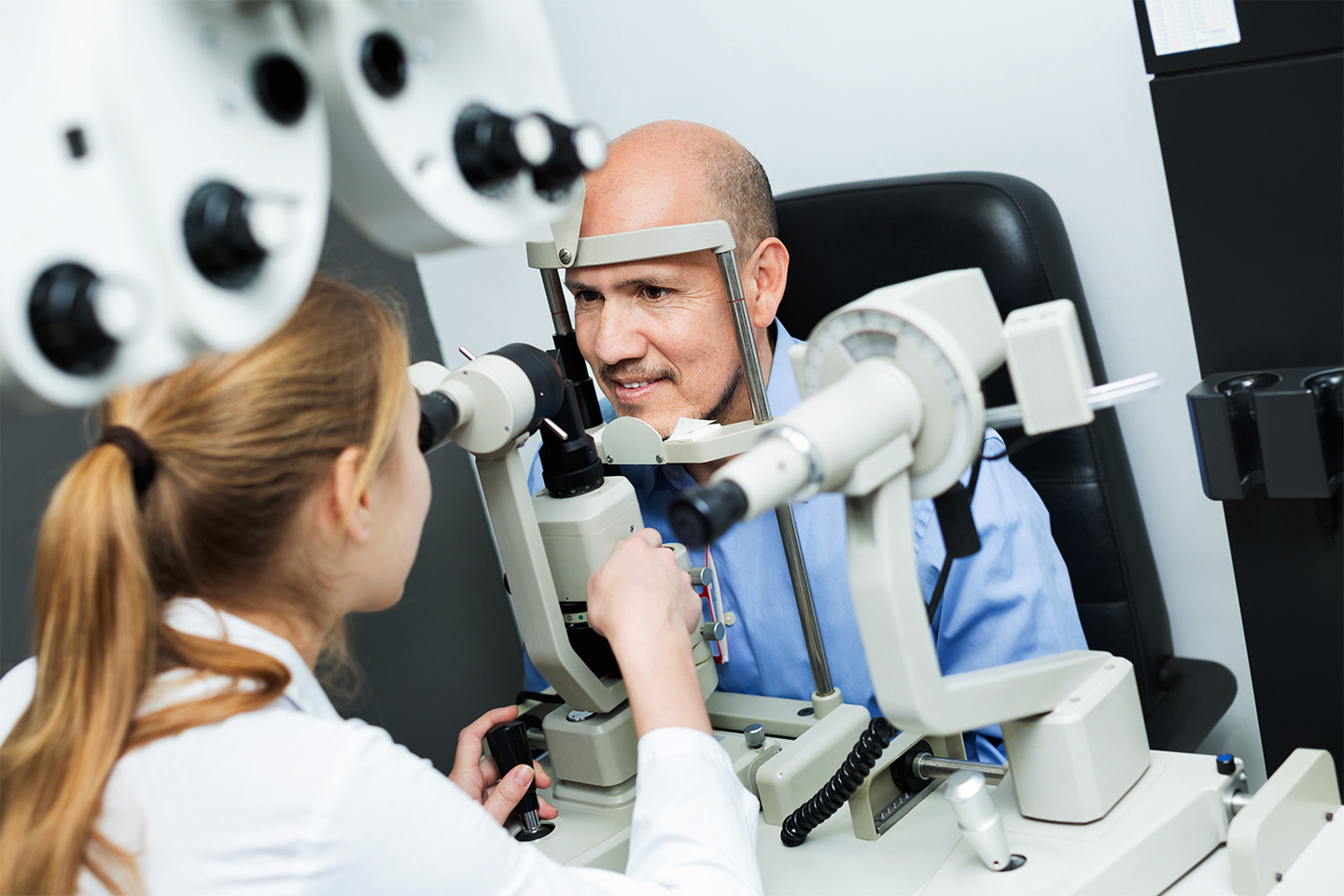Why You Might Have Blurry Vision after LASIK

After receiving LASIK vision correction surgery, it’s very common for patients to experience slightly blurry vision for a short time in recovery. Here’s what you should expect after undergoing the procedure.
There’s a reason patients have consistently sought out LASIK surgery over the course of the last two decades: it’s safe, it’s effective, and it’s increasingly accessible. Since its FDA approval in 1999, approximately ten million people have undergone the procedure, 96 to 98 percent of whom have ended up with 20/20 vision or better.
But these benefits don’t take effect the moment you leave the operating table. It will take your eyes awhile to adjust after the surgery, and most patients experience some blurry vision and other side effects for a short period of time. While blurry vision and dryness of the eyes can be irritating, there’s no reason to worry — these symptoms are very common, and in the vast majority of cases, subside after as little as 48 hours.
As with any surgery, your ophthalmologist should be able to help you prepare for both the LASIK procedure itself and the recovery process that will follow. With their guidance — and any resources they supply — you should be able to anticipate the after-effects of the surgery and ensure your eyes heal as quickly and completely as possible.
What to Expect After LASIK Surgery
Your body will likely need an adjustment period to get used to the effects of a reshaped cornea. With that adjustment period will come a host of mild side effects — the first one you notice will likely be blurry vision. Most of this vision impairment will dissipate within 24 hours of your surgery, leaving you with far greater vision than you had before the procedure. That said, total recovery from LASIK surgery can take anywhere from three to six months, and as your eyes continue to heal, you shouldn’t be alarmed if slight blurriness returns from time to time.
In the days and weeks after surgery, you may also experience redness, itchiness, and general discomfort around your eyes. One of the best things you can do to offset this discomfort is take a long nap, after which you may find the discomfort has completely disappeared. If not, most people report that these side effects gradually fade away within a few weeks. Just remember to avoid rubbing your eyes as you recover from surgery, as doing so could dislodge your corneal flap.
Finally, you may experience some sensitivity to light in the months following your procedure. This sensitivity might include seeing halos around lights, an effect that is exacerbated by seeing light refracted through glass — which is why it’s most often experienced when driving at night. These halos usually disappear within six months of your surgery.
Your experience of the recovery process will depend on a host of factors, including the visual impairment your surgery was intended to correct. Those who got surgery to correct their farsightedness, for example, will initially have an easier time seeing items closer to them than those farther away.
Within a month, however, these patients will find their ability to see at long distances becomes far better. Along the same lines, if your surgery was meant to correct a major vision problem — that is, if you required a strong eyeglass prescription before the operation — the recovery process is likely to take a bit longer than usual.
What You Should Do After LASIK Surgery

Your ophthalmologist will advise you how to shorten your recovery period and alleviate any side effects you may experience. However, there are a few guidelines that apply to most if not all LASIK patients:
- Remember to not rub your eyes in the weeks following surgery. It can be difficult to avoid when you’re experiencing discomfort, but rubbing your eyes will not only be painful, but could undo the work of the surgery.
- Use the eye drops prescribed by your doctor to relieve any discomfort you may feel, as well as to avoid infection.
- Avoid dusty or smoky areas, as well as any substance that may irritate your eyes.
- Avoid pools and hot tubs, or at least avoid submerging your head in them. Chlorine can be a serious irritant.
- Don’t use lotion or makeup around your eyes for at least a week after surgery.
- Schedule follow-ups with your ophthalmologist so they can supervise your recovery and take care of any complications should they arise. Be sure to contact them immediately if you experience any symptoms you find worrying.
Interested in pursuing LASIK surgery? You can learn more about this procedure and how it might be able to improve your vision by scheduling an appointment with Swagel Wootton Eye Institute. At Swagel Wootton Eye Institute, we’re here to answer all your questions and help you meet all your vision goals. Contact us today at our Mesa and Chandler locations to learn how you can start your journey to healthier, clearer eyes.









